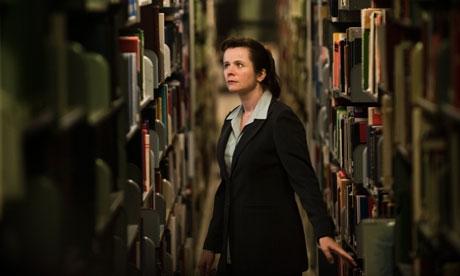This film tells an extraordinary - scarcely believable - story. Throughout the 20th century, the UK sent tens of thousands of children from care homes and orphanages to the colonies, later the Commonwealth. Parents were routinely told their children had been adopted by British families, while the children were told in many cases that their parents were dead. Children had been sent to the colonies since the 1600s but in the 20th century there was a formal nationwide policy organised by churches, local authorities and Dr Barnardo’s homes, which stopped only as recently as 1970.
Jim Loach's (son of Ken Loach) feature debut is a faithful adaptation of Margaret Humphreys’ book Empty Cradles, which is about how she came to establish the Child Migrants Trust. In 1986 Humphreys (beautifully played by Emily Watson) was a social worker in Nottingham and an Australian woman (here given the name Charlotte) contacted her to ask for help in tracing her mother. When Charlotte says she had been shipped to Australia at the age of four Humphreys tells her she must be mistaken, as no authority would allow such a thing to happen.
It’s only when by coincidence Nicky (Lorraine Ashbourne), a member of Humphreys’ post-adoption support group, mentions she has a brother who was taken from the care home they were in and sent to Australia that her suspicions are aroused and she starts doing some digging. After searching local and national archives she then visits the Australian High Commission in London, where an official acknowledges that records on such migrations exist; it is at this point Humphreys realises Nicky and Charlotte are part of a much bigger story.
Loach tells the tale in linear fashion and takes only a few dramatic liberties (making letter correspondence into face-to-face meetings, for example) to condense a complicated story involving many people over several years taking place on two continents. It’s part detective story, part biography and part documentary, as we see Humphreys criss-cross between Australia and the UK to make contact with other child migrants (there were about 3,300 sent to Australia in the postwar years alone) and overcome the obstacles both British and Australian governments put in her way as she tried to reunite families.
‘There are wonderfully reined-in performances, although there will be a few quiet sobs as the stories unfold
Taken away from their parents, the child migrants were intensely vulnerable and many suffered horrific physical and sexual abuse. One place they were sent to, Bindoon, a boys’ home on a farm near Perth run by the Christian Brothers, was particularly notorious. David Wenham plays Len, now a successful Australian businessman who says the tough life he endured at Bindoon has made him the man he is; he is initially suspicious of Humphreys’ motives - is she just a colonial do-gooder here to rake up long-buried feelings and then bugger off, or is she for real? He ends up being her staunchest ally as various people - we are never told who - try to sabotage her efforts to uncover the facts. Humphreys also meets Jack (Hugo Weaving), Nicky’s brother, who had grown up not knowing his mother was still alive and is now desperate to find her.
Some of the organisations involved in this policy no doubt thought they were acting in a philanthropic manner - sending the children to the life of oranges and sunshine of the title - while others were cynically ridding themselves of an embarrassing social problem and financial burden. Many of the children - aged between three and 14 - were the offspring of single mothers, and whereas it cost £5 a week to keep a child in care in postwar Britain, it cost only 10 shillings (50p) in an Australian institution.
Rona Munro’s unfussy script lets the children’s stories tell themselves without hyperbole and there are wonderfully reined-in performances from all concerned, although there will be a few quiet sobs as the stories unfold. “Do you think I’ve got a mother?” asks one child migrant, now an adult. “Everyone’s got a mother,” replies Humphreys. Quite. A superb, moving and important film.
Watch the trailer for Oranges and Sunshine















Add comment